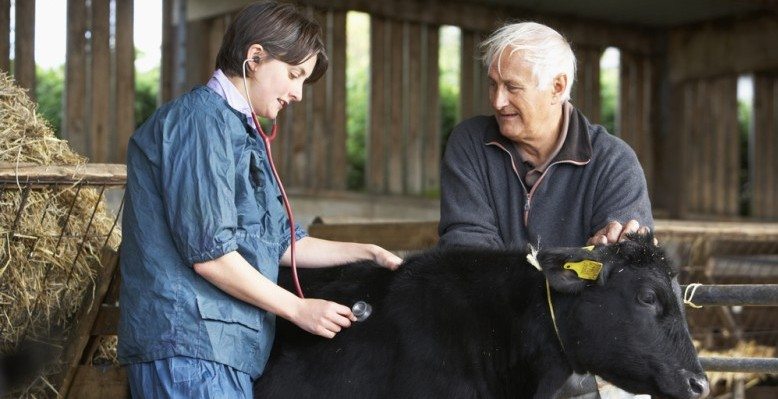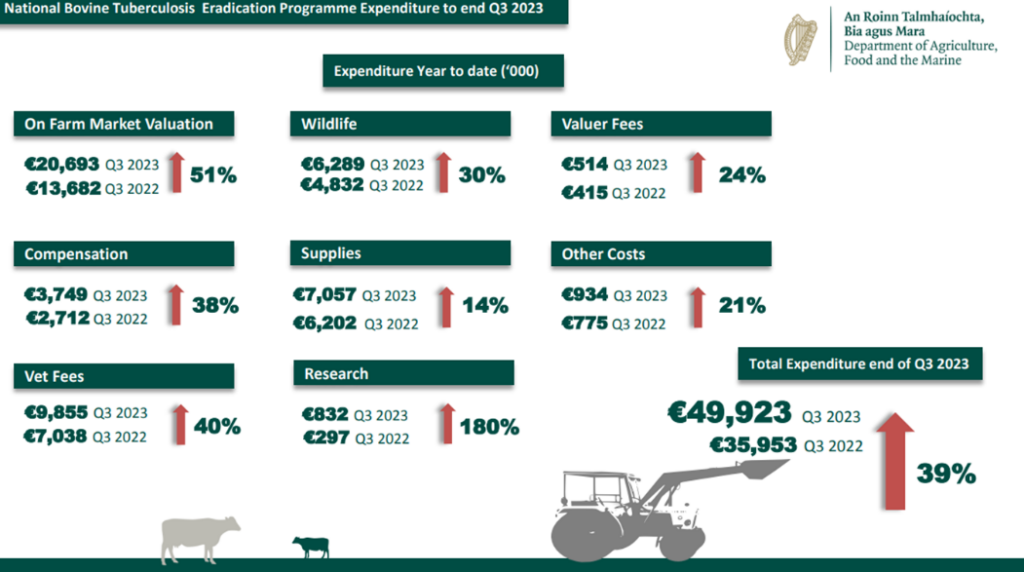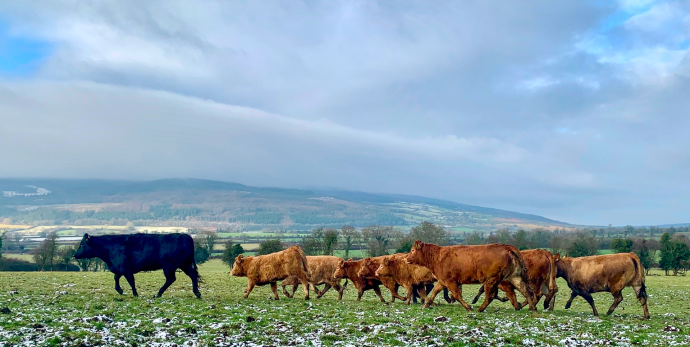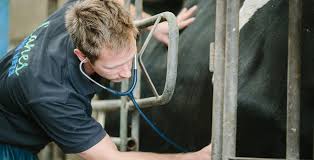Animal Health Reports
Animal Health Council Report November 2023

Disease Trends
TB Statistics


TB Update
- Roll out of increased support payments. Increased compensation payments are planned to commence issuing over the coming weeks. Farmers who are eligible will receive payments backdated to 1st February. This will include top ups to Income Supplement payments, Depopulation Grant payments, Hardship Grant payments and Live Valuation payments where animals were valued above the previous ceiling amount.
- Wildlife Control Programme. DAFM have committed to an additional 26 FRS operatives for the wildlife programme. These positions and a number of TAO vacancies remain to be filled. IFA have raised this issue at the TBIG and a letter has issued to the Minister for Agriculture to urgently address the matter. IFA have also called for a review of the Wildlife Programme in light of the unacceptable delays in providing the staff resources required in the programme. To-date over 10,000 badgers have been treated in the programme
BVD PI Birth Maps 2013 and 2023
- Next Steps
- On track to attain recognised BVD Free status under EU Animal Health Law
- Key Considerations
- On attainment of recognised freedom vaccination would be prohibited
- Proof of freedom monitoring required
- IFA Position
- Must protect the progress made
- DAFM must seek facilitation of vaccination for period after attainment of Free Status
- Proof of Freedom must also be effective case detection
- Tissue Tag Testing is the most effective and cost-effective case detection approach
- DAFM must pay for all remaining testing in the BVD programme – €2.25m provided towards testing in 2023, this must be increased to full testing costs.
BR
- Discussions have begun on the design of a National IBR program.
- A proposed program by AHI includes a cost of €40 million per year and a 16-year timeline for achieving eradication, along with movement controls on farms.
- The impact of IBR on dairy farms has been estimated at €88 million per year, with no assessment conducted for suckler and beef farms.
- The funding model remains a critical issue to be addressed in order to advance the programme.
- The move to include IBR testing in the NBWS has seriously undermined the efforts to develop a programme.
- IFA, at the last IBRIG called for the Minister for Agriculture to come forward with clear direction on IBR, including a funding model and responsibilities for developed of the programme.
Veterinary Medicine
- IFA continues to engage with stakeholders, including prescribers, suppliers, and veterinarians, regarding the Veterinary Medicinal Products, Medicated Feed, and Fertilizers Regulation Bill 2023, aiming to find a satisfactory solution for all parties.
- The IFA maintains a longstanding policy supporting the usage of veterinary medicines on farms, recognizing their vital role in meeting animal health and welfare legislative obligations and maximizing the productive capacity of animals. Access to these products in a competitive market is crucial for farmers.
- The IFA fully supports the targeted and appropriate use of veterinary medicines and actively participates in stakeholder groups, including the Antiparasitic Stakeholder Group, established by the Minister for Agriculture to achieve this objective at the farm level.
National Deer Management Strategy.
- IFA have actively participated in the process to-date. The group are progressing with the development of a framework to reduce the numbers of Deer nationally.
- The objective is to commence deer number reductions in some areas this year. IFA met with the chairman of the Forum to ensure the mandate of the Forum is delivered on, which is the reduction in the Deer population nationally.
- This will require a formal legislatively based structure with responsibility for deer management and the funding necessary to carry out the action of reducing deer.
Fallen Animals
- EU Regulation requires the Department of Agriculture to provide the infrastructure for farmers to meet their legal obligations in relation to fallen animal disposal.
- The current infrastructure provided by DAFM does not provide a guaranteed collection service for all farmers in the country and fails to have a competitive cost structure for the service. Despite DAFM providing direct subvention to Fallen Animal Collectors under a scheme that has maximum fees allowable to be charged to farmers DAFM have no inspection system in place for compliance with this requirement.
- The current system is failing to deliver on its objectives through a combination of Department of Agriculture failures in the construct of the system and oversight of the subvention criteria.
- Maximum allowable collection fees;

IFA Proposal
- The entire fallen animal disposal system must be reviewed and the most efficient system that delivers guaranteed collection of fallen animals to all farmers in the country at competitive rates provided.




